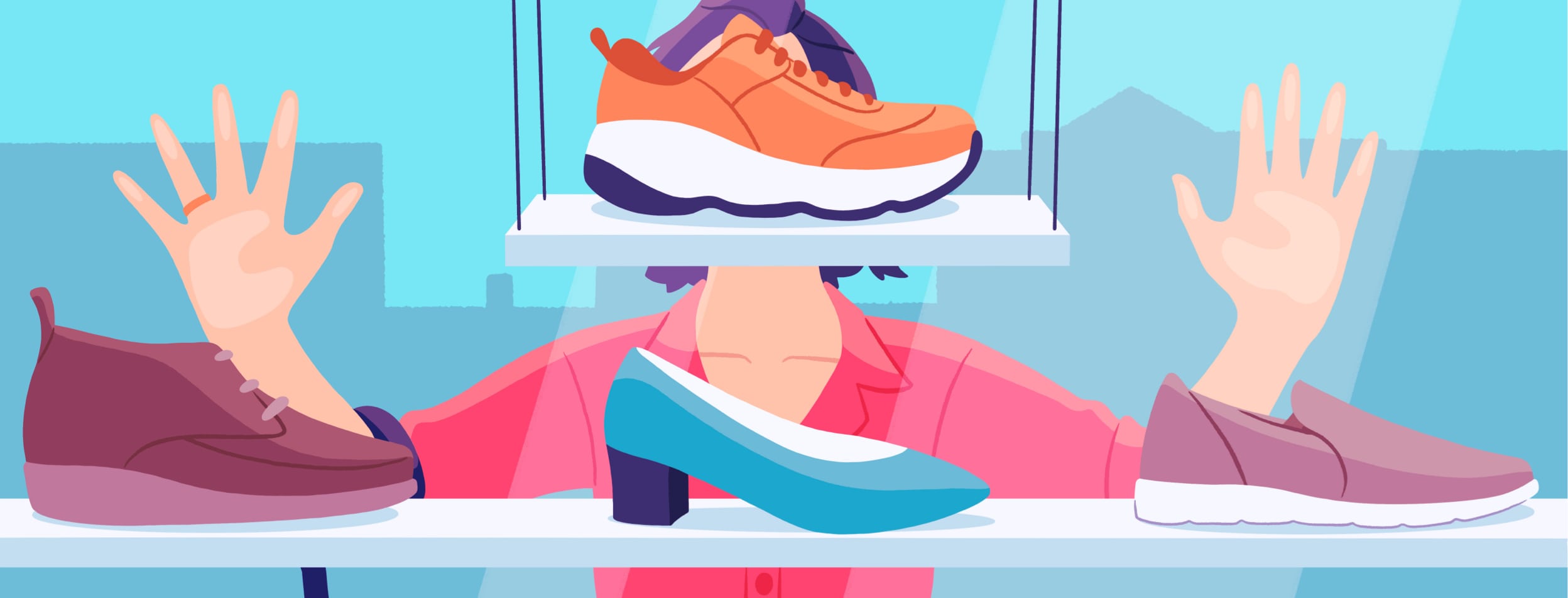Good Shoes for Arthritis Shouldn't Have to Break the Bank
Here's a controversial opinion: good shoes for people with psoriatic arthritis (PsA) do not always have to be expensive. There, I said it. There's a lot to unpack in that statement.
I am not implying that any old shoe from the clearance rack will work for you. Nor am I saying that you shouldn't consider investing in well-made orthopedic shoes; footwear is an excellent investment, and some brands are known lifesavers.
I also want to acknowledge that for some, the pain, swelling, and joint damage make any shoe painful to wear.
Foot pain & psoriatic arthritis
When you start experiencing foot pain, it seems like everyone has a shoe recommendation. And 9/10 times, the shoes are very expensive (and, let's face it, a little ugly). It can feel hopeless if you don't have a lot of money to spend or if you take the plunge only to have pain still!
I've learned that it is possible to find shoes suitable for arthritic feet without a painful price tag. Through my experience living with foot pain since childhood and studying industrial design (including a shoe design course), I've discovered that footwear design is complicated, and one size does not fit all.
The factors that go into why a shoe may or may not work for you go far beyond brand names and steep prices!
A painful lesson learned
It was a struggle to go shopping when my foot pain got more severe in my teens and early twenties. During those years, people would always recommend highly-regarded brands of shoes to me. Unfortunately, I didn't have much money to spend. So I made do with what I could afford and longed for the miracle shoes.
I was excited to discover a local outlet that had some of the high brands recommended to me. I dropped a significant (for me) amount of money on two pairs of shoes that felt comfortable enough in the store. But I still wound up swollen, blistered, and cramping.
And the same thing happened when I tried again at a later time with some other brands. It was discouraging. Instead of blindly trusting the brand, I wish I had done some research.
The expensive shoes did me no good!
Later in college, I learned that every shoe company uses different measurements for its standard sizing. Many think this only means you might be an 8 in brand A but a 9 in brand B. But it's more complex than that - every company handles width, foot shape, arch height, and other factors differently.
Apparently, the brands I bought are better suited for people with more narrow feet and high arches. No wonder why my wide, flat feet were irritated!
After that experience, I felt hopeless. I wasted so much money, and my feet were still a mess.
Shoes from Walmart? Really?
Then one day, my mum stumbled upon a miracle in the clearance section of Walmart. While I was hesitant, she reassured me they were comfortable and soft.
I returned to the store the very next day and bought a second pair; they saved my feet. When the fall collection came out, I tried on some new styles that were also comfortable. But this time, I was more educated, and instead of blindly trusting the brand, I thought about why the shoes worked for me.
Start a Forum
That particular brand tends to run wide - which is perfect for my wide feet and my swelling. They also made almost every pair with memory foam insoles and foam soles, which are ideal for heel pain due to enthesis.
It takes trial and error
The styles that worked best for me usually offered options to make the top larger, with a large tongue, adjustable straps, or stretchy material. After my discovery, I started to look for these traits in all the shoes I bought.
While I still have pain and days when even my favorite shoes can barely slide on, things have been much better. Nowadays, I have shoes from many price points and brands- but they all have common traits.
Identifying exactly why a particular shoe pair irritates or helps you goes a long way. That might mean investing in an expensive pair of shoes if they meet all your criteria, but you might be surprised to find some hidden gems.
Sometimes it's about what doesn't work
You should be picky about the material and structure of your shoe; you may even discover you can't handle certain styles, no matter what. For example, I cannot wear ballet flats; even with a thick sole and memory foam insoles, they're just not supportive enough and leave me with cankles (a friendly term for when your swollen calves swell into your ankles).
Another example is that foam is highly favored by many people in the PsA community and me for footwear because it's light, acts as an excellent shock absorber, and doesn't rub and cause blisters if you swell. Win-win-win!
You need to select shoes that work for you
That might mean finding the perfect brand and sticking with it. Or realizing you can wear various brands as long as they meet specific criteria.
Never feel pressured to buy the first pair of name-brand shoes someone promises will take away all the pain - do your research, try them on, and listen to your body.
What brands work for you? And, more importantly- why? Is it the arch or the material? Share the wealth!
This or That
Do you also find it painful to sit for extended periods of time?

Join the conversation